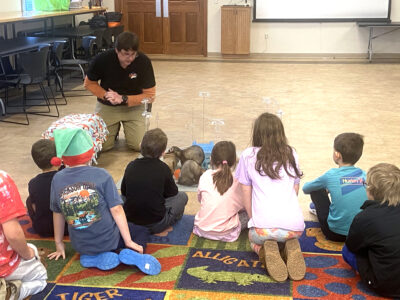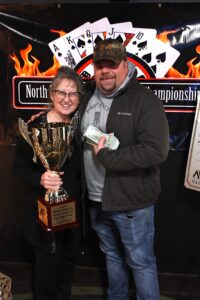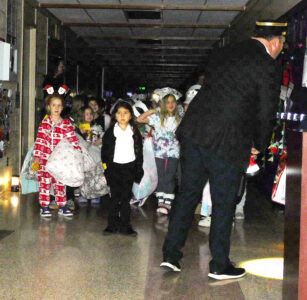Retirement’s Comic Relief: Do nice guys really finish last?
Before leaving for school in Kansas City, I agreed to share a small third-floor apartment in an older, repurposed home with someone who I did not know well. The $30 per month for half of the rent would be manageable and it was close to campus. Arriving several days before classes began, I unloaded possessions, tucking some under the single bed wedged into a dormer alcove where I would sleep. A sign taped above the bathroom door read “NICE GUYS FINISH LAST.” I didn’t like it.
In the March 2025 edition of The Elks Magazine, I discovered an extensive story about a genuine nice guy — Gene Autry, The Singing Cowboy. It tells of his meager childhood working on the family farm near Tioga, Texas. Besides helping with farm chores as a youngster, Autry swept the barbershop floor, shined shoes there and sang his yodeling style while playing guitar to help customers pass time while awaiting a trim.
It wasn’t long before he was recruited to play barn dances. His first hit record, “That Silver-haired Daddy of Mine,” sold thirty thousand copies during the first month after its release. Autry enlisted in the US Army Air Force in 1942 and flew cargo missions to multiple locations, including some in the China/Burma/India Theatre.
My own memory of The Singing Cowboy developed watching The Gene Autry television show every Saturday morning during the ’50s and early ’60s. Autry, with his trusted steed Champion, resolved every dilemma without a fight or gun before riding into the sunset as I sang along with him, “I’m back in the saddle again. Back where a friend is a friend.”
He also became quite willing to share his success, providing charitable support for numerous causes during his lifetime — to the tune of millions of dollars. Autry’s life as a nice guy ended in 1998 at age 91.
Another nice guy I later came to know sang now and then as well but didn’t ride a horse. Walter Workman was the sole janitor at Hyde Elementary School in Wichita, Kansas, where I landed a job as his custodial aid while attending college.
At perhaps 5 feet 4 inches, Mr. Workman was a small but hardworking man with a big heart who taught me how to effectively operate a mop, wax and polish floors and the courtesy to help elementary kids tie their shoes. Like Autry, Workman wasn’t averse to hard work or kindness to others in need of assistance – including elderly folks in his church who sometimes requested his help with household problems.
Rita and I watched the movie “Greater” on Netflix recently. The show is based on the true story of Brandon Burlsworth (called Cheesecake by his brother) and his determination to play football for the Arkansas Razorbacks. In its own way, Cheesecake’s legacy closely paralleled those of Gene Autry and Walt Workman.
In anyone’s book, all three finished far from last. They each worked hard while inspiring others to be one of those genuinely nice people we stumble onto now and then. Like the neighbor who brings a casserole over when you are ill, the cousin who keeps in touch or maybe the stranger who takes time to help you change a flat, holds the door open or lends a hand when you need it.
After one semester of sharing an apartment in Kansas City during the fall of 1971, things weren’t working out. It was time to relocate. Once more I loaded my car with possessions. Before shutting the door on the way out, I removed the sign over the bathroom door and tore it up. After all, it’s not where you finish in life that matters. Instead, it is how well you’ve treated and cared about others that counts.




